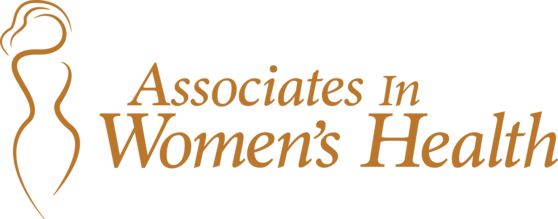Breast cancer is by far the most common cancer of American women, with approximately 280,000 new cases of invasive disease expected in 2021. In addition, there will be another 50,000 cases of non-invasive breast cancer diagnosed. Put another way, 1 in 8 women (13%) will develop breast cancer at some point in their lives. Along with being the most common, breast cancer is the second leading cause of cancer death (and the #1 cause in nonsmokers), surpassed only by lung cancer. Unlike lung cancer, which is strongly associated with tobacco use and whose risk can therefore be dramatically reduced by choosing not to use tobacco products, there are no such easily modifiable risk factors for breast cancer. As a result, ALL American women must consider themselves at risk for it and take appropriate measures to increase their odds of surviving the disease, which includes obtaining women’s preventive healthcare services. At Associates in Women’s Health, our OGBYN medical professionals are here to assist you in your preventive care as well as in addressing any concerns that arise.
Breast cancer is extremely uncommon prior to age 25. The incidence starts to rise between ages 26-35, but the overall occurrence for women considered at average risk remains relatively low until the decade of the 40’s, when it increases significantly. Obtaining preventive care in a woman’s 20’s and 30’s through her well woman annual breast check up exam increases the likelihood of finding breast cancer early on. The risk of breast cancer remains high for the rest of a woman’s life, with the chance of developing cancer of the breast rising with each passing decade. 5-10% of breast cancer is linked to genetic mutations (such as the BRCA1 or BRCA2 mutations), which dramatically increases lifetime risk to an estimated 70% for these two mutations. In addition, possessing one of these mutations increases the risk of early onset disease. Having said that, only 15% of women who develop breast cancer have any sort of family history, meaning that 85% of new cases occur in women where no one else in the family has had it. This emphasizes the sobering fact that all women must consider themselves at risk and make sure to get women’s preventive healthcare services, regardless of family history.
Well Woman Annual Breast Check Up Exam
The goal of a woman’s annual check up exam and screening for breast cancer is to increase the odds of surviving the diagnosis. Unlike some other types of cancer screening, most notably the Pap smear for cervical cancer and colonoscopy for colon cancer, screening for breast cancer is not specifically intended to find “pre-cancerous” disease. Rather, breast cancer screening is looking for early cancers, the idea being that catching these cancers at an earlier stage improves survival. There are two components to this screening in Gillette, WY, mammography and clinical breast exam, and they are felt to be complimentary. Screening mammography is the mainstay of breast cancer screening, with clinical breast exam performed by a trained clinician estimated to identify an additional 2-6% of cancers. Monthly breast self-exams are no longer recommended as they have not been shown to improve outcomes; however, women are strongly encouraged to “know their breasts” and to report any new or persistent lumps, skin changes, nipple discharge, or changes in appearance. If any changes arise, it is recommended to consult a medical professional.
There has been a revisiting of guidelines for screening mammography by various organizations such as the American Congress of Obstetricians and Gynecologists (ACOG), The American Cancer Society (ACS) and the United States Preventative Services Task Force (USPSTF) over the past few years, which has led to some divergence in recommendations regarding when to start screening in average risk women and how often to perform screening as part of your woman annual breast check up exam. Despite this, the data consistently shows that beginning screening mammography at age 40 and performing this screening annually saves the most lives. Accordingly, the American Congress of Obstetricians and Gynecologists continues to advise initiating mammograms at age 40 and yearly thereafter. Breast cancer screening can be discontinued, in shared decision-making between a woman and her physician, at any age when other health issues exist that predict a life expectancy of less than 10 years. Other types of imaging techniques such as ultrasound or thermography have not been shown to be as effective as mammography for screening purposes, but can be used to evaluate certain types of concerns or as an adjunct to mammography.
If you have additional OB/GYN related women’s health questions, or want to setup an appointment, please call us today at (307) 682-4664 to speak to our friendly staff. Associates in Women’s Health is located at 1307 W 3rd St STE A, Gillette, WY 82716.
Resources:
American Congress of Obstetricians and Gynecologists
Breastcancer.org
American Cancer Society
U.S. Preventative Services Task Force

